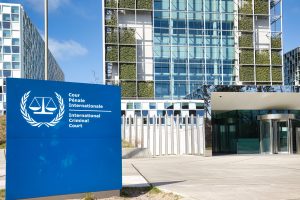Former Philippine President Rodrigo Duterte is now under the custody of the International Criminal Court (ICC), where he has been accused of crimes against humanity related to his government’s brutal “war on drugs,” known locally as “Tokhang.”
Duterte’s arrest in March followed months of investigation conducted by the House of Representatives about his links to the notorious death squads in Davao, where he served as mayor for almost three decades, and his role in the drug-related extrajudicial killings (EJKs) during his term in office from 2016 to 2022.
Human rights advocates described Duterte’s ICC custody as a significant first step in holding the former president accountable for the crimes committed in the enforcement of “Tokhang.” But they were also quick to point out that Duterte should be charged as well for his many other sins against the Filipino people.
For example, EJK victims during his term were not limited to suspected drug users, peddlers, and drug lords but also included lawyers, indigenous peoples, farmers, journalists, health workers, and activists. The culture of impunity worsened under Duterte, as he vowed to protect law enforcement authorities involved in Tokhang operations. He also led verbal tirades demonizing his critics, political rivals, and activists.
He weaponized the bureaucracy by signing the amended anti-terror law, he created an inter-agency task force that normalized red-tagging, he declared Martial Law in Mindanao, which led to the bombing and eventual dismantling of Lumad indigenous schools, and he unilaterally scuttled the peace talks with the communist movement.
He suppressed the opposition by shutting down the country’s biggest media broadcaster, he slapped independent journalists with trumped-up charges, and he jailed a sitting senator who had previously looked into the EJKs in Davao.
The claim of Duterte and his supporters that life was better under his rule is belied by what he did during the COVID-19 pandemic. He relied on a militarized approach in imposing total lockdowns instead of focusing on mass testing and medical solutions. The prolonged police-administered lockdowns destroyed livelihoods and undermined the local economy. The extended closure of schools disrupted the learning potential of students. A Senate probe revealed how Duterte’s subordinates took advantage of the pandemic to squander public funds by procuring medical equipment and other emergency supplies through anomalous contracts.
Before the pandemic, Duterte approved several tax reform measures that benefited the corporate sector at the expense of the working classes. Aside from regressive taxation, Duterte expanded agricultural importation, further hurting local producers. He ordered the supposed modernization of the transport sector, but it became a pretext to phase out traditional jeepneys. He substantially increased the salaries and benefits of soldiers and police but rejected a legislated wage increase for workers.
Despite the 2016 victory of the Philippines in the Permanent Court of Arbitration, Duterte failed to use the favorable ruling of the international body to assert the country’s maritime rights and push back against China’s aggressive actions in the West Philippine Sea, as Manila refers to its area of the South China Sea. He pivoted closer to China and sought to secure key investments by claiming to sever military ties with the United States, but he ended his term without scrapping any major military pact with the White House, and his close ties with China did not stop the latter from continually harassing Filipino fishers.
Duterte’s ICC trial will take years to finish, and global attention will be focused on this case. Meanwhile, human rights advocates are expected to use this opportunity to remind the public about Duterte’s other transgressions. They can review the initial report of a Congress committee that recommended the filing of criminal cases against Duterte in the local court. The high-profile ICC trial could embolden families of EJK victims and other witnesses to testify about what they endured during Duterte’s term.
Duterte’s arrest agitated his supporters, who organized protest assemblies and flooded social media with vitriolic comments about the alleged persecution of their revered leader. A month after his arrest and the partial easing of the tense situation, more information is coming out about the deadly legacy of his presidency. His supporters are trying to depict him as a victim of vicious partisan politicking, but this narrative is easily debunked by a simple review of what he really accomplished and failed to do when he was president.

































